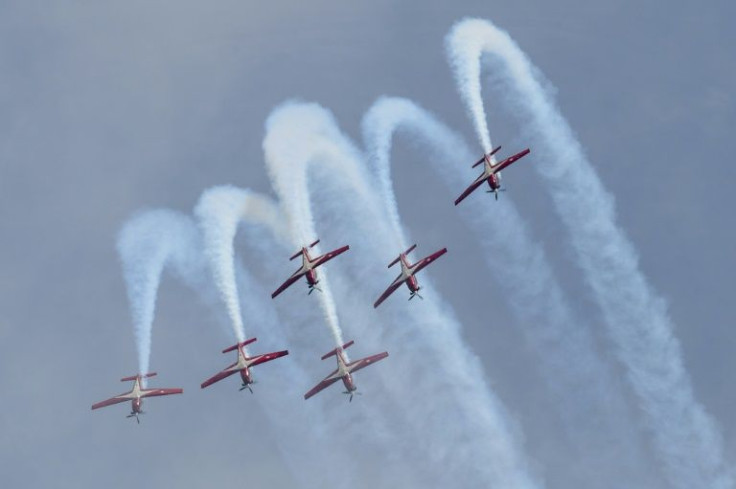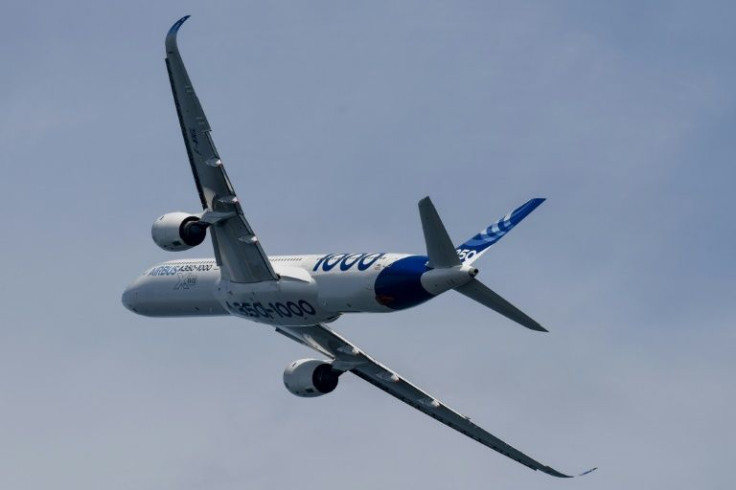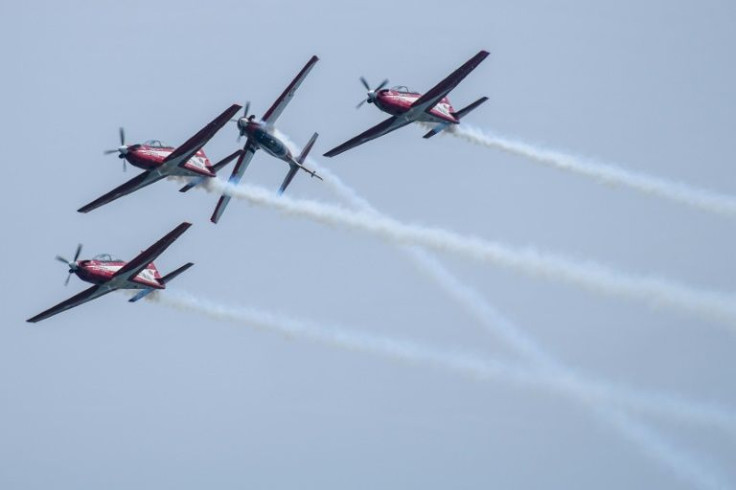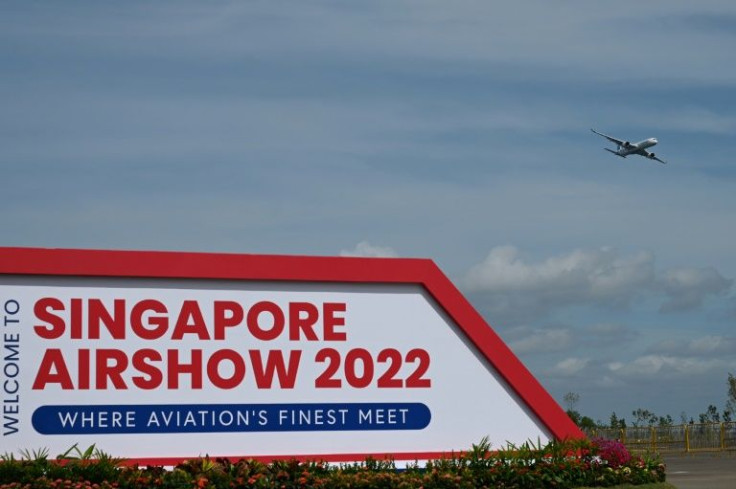Hopes For Recovery In Focus At Asia's Biggest Airshow
Asia's biggest airshow takes place in Singapore this week with the aviation sector hoping 2022 marks a turning point in a region where tough curbs have left coronavirus-battered airlines struggling to recover.
The event, which takes place every two years and kicks off on Tuesday, brings together hundreds of airlines, plane manufacturers and other industry players to display their latest equipment, network, and strike deals.

But the pandemic -- which has been the biggest crisis to ever strike the sector -- will cast a long shadow, with industry leaders focused on the question of whether air travel will finally pick up in the Asia-Pacific.
While the United States and Europe have eased restrictions and demand has rebounded, Asia lags far behind, with foreign tourists barred and mandatory quarantines still in place in many countries.
There are positive signs for 2022 -- several places, such as Australia, New Zealand and the Philippines, are lifting bans on overseas visitors -- but industry figures warn there is a long way to go.

"We've seen the recovery come in very, very strong in North America and Europe when the restrictions were eased," Anand Stanley, the Asia-Pacific chief for European plane-maker Airbus, told a forum before the airshow.
"Asia still has to follow that track. We still have semblances of a quarantine-based regime, border closures. This has to be lifted so that the freedom of movement returns and in turn the demand returns."

Data highlights the slow pace of recovery -- the region's airlines carried 16.7 million passengers last year, just 4.4 percent of volumes seen in 2019, according to the Association of Asia Pacific Airlines (AAPA).

With the Asia-Pacific rebound nascent and Singapore currently battling a fierce Omicron wave, the four-day airshow is likely to be muted with about 600 companies taking part, down from over 900 at the last edition in 2020.
Participants will be required to take daily virus tests, while the public have been barred from attending a series of aerial displays as authorities look to cut infection risks, with the aerobatics instead to be live-streamed.
Nevertheless, key players such as Boeing, Airbus and engine-maker Rolls-Royce will still be attending, and the show will be a rare opportunity to hold in-person meetings with customers to drum up new business.
Leck Chet Lam, managing director of the airshow's organiser Experia, said the event remains a platform for finding solutions "so that we can be ready for the recovery".
"We are starting to see green shoots in the industry... Passenger travel numbers are up, flight frequencies are up," he said.
For the industry, the only way for Asia to chart a course to such a recovery is if governments in the region finally drop restrictions and pivot towards living with Covid-19.
"We need governments to get their act together," said Alex Feldman, US aircraft-maker Boeing's Southeast Asia chief.
They have to "coordinate and simplify the requirements for safe travel", he added.
But Shukor Yusof, an analyst with Malaysia-based Endau Analytics, said he doubted a recovery would start this year.
"There are still many obstacles for airlines to surmount," he told AFP.
"There's been little effort to streamline air travel and worse to formulate a new doctrine to deal with a post-Covid landscape."
© Copyright AFP 2024. All rights reserved.





















